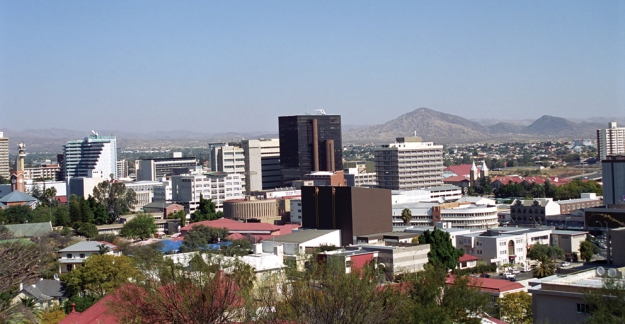After 21 years of independence, Namibia has healthy democratic institutions, even if broad-based development is still proving elusive.

Very few events in the intervening two decades have succeeded in overshadowing the euphoria that accompanied Namibia’s independence in 1990. This was the moment when a population of less than two million was finally freed from over a century of colonial rule after 24 difficult years of armed struggle. Namibians could at last prepare to embark on a new future with a new democratic dispensation, a progressive constitution and an inalienable bill of rights.
Self-determination having been realised – with UN-supervised elections leading to victory for the South West Africa People’s Organisation (Swapo) – most Namibians believed the new era would bring peace, equality, justice and human rights. They hoped for a break with their apartheid past, as well as a better life for those who had suffered most. The big question was whether Namibia could become what the founding President Sam Nujoma had hoped for when he was interviewed several years earlier – the “first African success story”. But freedom came with no easy answers. While there have clearly been positive developments in terms of the country’s freedom and democracy – which were once only very dim and distant dreams – reality bites hard. Despite the best of intentions, the utopian dream that accompanied independence has not yet materialised for a broad section of the population.
Peace was the most immediate post-independence gain, although an aborted secessionist attempt in the north-eastern Caprivi Region in the 1990s briefly disturbed the tranquillity. But despite a new-found sense of democracy, as well as a vibrant and pluralistic media, civil society was and remains weak and often ineffective as Swapo’s dominance has increased at the polls over the ensuing years. Even the best intentions of the Swapo government haven’t always had the desired effect.
In an attempt to heal the deep societal divisions resulting from the war, the new government tried to take an inclusive approach towards the multiplicity of ethnic groups and to put into effect the ‘One Namibia, One Nation’ slogan adopted during the years of struggle. Yet, despite former President Nujoma’s policy of reconciliation, divisions still run deep and resentments continue to simmer.
There are those who blame the apartheid legacy for Namibia’s post-independence difficulties. Others are more concerned about the problem of entitlement, which has led to a policy of ‘jobs for comrades’, as well as the elite benefiting from past and current land redistribution and resettlement initiatives.
Substantially more Namibians have had access to education since independence, but policy-makers have been forced to rethink the current system, which seems to be failing. Teaching standards are falling and examination results continue to disappoint year upon year. A recent government study revealing that some 98 percent of teachers are not proficient in the English language has added to the disquiet.
Some of the positive gains of independence have also largely been overshadowed by high levels of unemployment. Although the figure is under dispute, unemployment has been estimated at over 50 percent, affecting young people in particular. This has contributed to the widening gap between the ‘haves’ and the ‘have-nots’. And corruption has not been successfully contained by President Hifikepunye Pohamba, despite a ‘zero tolerance’ campaign and the appointment of an independent Anti Corruption Commission. It is widely accepted that lack of political will combined with the politics of patronage are exacerbating the problem.
Swapo’s simple majority win in 1990 has consolidated over the two decades since independence into a dominant two-thirds majority, while opposition parties remain fragmented and weak – giving voters few options when they go to the polls. The opposition parties are at times their own worst enemies, but Swapo has tended to display a degree of intolerance towards political opposition, which is at odds with the constitutional commitment to pluralism. In view of this, it is perhaps not surprising that Swapo has largely relinquished the broadbased consultative approach that it adopted shortly after independence, and this in turn has resulted in strong feelings of marginalisation among other groups.
Even if the democratic commitment remains fragile, the so-called ‘born-frees’ (those people born after independence) are becoming increasingly vocal and more active in the debate over the country’s future, especially in the growing adherence to new social media. Free speech is now more deeply entrenched and there are a number of vibrant public discussion platforms, including SMS pages in sections of the print media, radio phone-in programmes and, to a more limited extent, Facebook and Twitter. People use these media with alacrity, and this has largely helped dissipate what was generally known as the ‘fear factor’ – a phenomenon that has lingered since the apartheid era.
While the promised fruits of independence may not yet have reached the broad spectrum of the population, and the government’s success in attracting investment has not paid much in terms of long-term dividends, there have been plenty of immediate and valuable gains. There are now regular elections – even if inefficiencies on the part of the Electoral Commission of Namibia have sometimes led to recounts and court challenges. There is much wider access to schooling. Government benefits are available for ex-combatants and war orphans, and other vulnerable groups. And the rule of law has been successfully entrenched, with the courts at times being outspoken, although they remain visibly understaffed.
Namibia may not yet have been united into ‘One Namibia, One Nation’ as the pre-independence clarion call promised, but it remains firmly on the path to consolidating its hard-won democracy.





